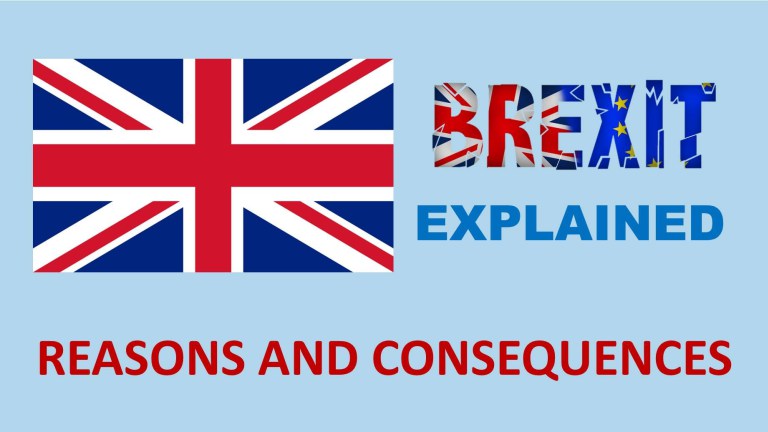The Brexit consequences on the global economy have been a major topic of debate both before the EU referendum on the UK and now after the Brexit vote. Economists and concerned individuals have spoken out some in favor and others against the Brexit. Those who campaigned for the UK to remain within the UK such as the UK treasury dept. had argued that staying in the EU had a strong and effective impact on trade and advised against withdrawal, citing possible adverse effect on trade if UK decides to quit EU. On the other hand, supporters of Brexit argued that if the UK withdraws from EU and stops the net contributions to EU, the savings will help increase and improve government spending or allow for tax cuts.
Then eventually, the referendum happened, bringing Brexit into existence. Most observers, markets and oddsmakers were caught off guard. The effect was an immediate shockwave across the financial markets, the pound suffered its biggest one-day loss against the dollar. Although the market made a swift recovery, a lot is still happening. This includes the thousands of jobs that are about to be moved. It is obviously impossible to estimate the actual cost effect of Brexit. But they are numerous reports on the possible impact via new tariffs and the effect from the restriction of movements within Europe.
brexit consequences
Brexit
Now, for those who are not familiar with the term, “Brexit” represents “British Exit”. This means the withdrawal of the United Kingdom (UK) from the European Union (EU). This happened in a referendum held on 23rd June 2016. With 51.9% of the voters voting in favor of the exit from EU. After the unexpected majority victory of the conservative party in the 2015 general election, the European Union Referendum Act 2015 was introduced into the UK parliament. Even though David Cameron (the then prime minister) was in favor of staying with EU, the renegotiation outcome with EU necessitated the need for the referendum.
The Brexit Consequences on Economies around the World
Since the Brexit, lots of business investments have suffered. This is because of the cloud of uncertainty surrounding the UK’s future trade arrangement. The last quarter of 2016 saw investment fall by 0.9% a feat that last occurred in 2009. The Bank of England has estimated that business investments in the UK will decrease to around 25% by 2019. Remarkably though, the British consumer market was resilient post-referendum recording a robust GDP growth which ensured they were no recession.
On the local front (UK economy)
On the banking and financial services front, some banks are already planning to move their staff and services. Goldman Sachs’ Europe chief executive has been quoted the bank would relocate hundreds of its staff out of London as a contingency plan to the Brexit. More organizations like Transferwise (one of the biggest fintech firm in Europe), UBS has already taken more drastic actions.
The Auto industry is, without doubt, one of the economic sectors which could potentially be hit hard by the Brexit. This is because the industry depends on workers from abroad to complete many of its duties. The Brexit consequences on the industry could result to the introduction of 10% tariff on finished vehicles and a 4.5% tariff on component parts. Taking this into consideration, the price tag for new vehicles could considerably soar to as high as £2,000 per car.
Food and drinks industry is not left behind in this trend. Considering that more than half of the food consumed in the UK is imported. The Brexit consequences have seen the cost in supplies jump to a new high. These, in turn, is passed on to the consumer as dealers aim to protect profits. Most supermarkets have already hiked prices or are considering hiking to reflect the situation of things. Meanwhile, some other companies have quietly shrunk the sizes of their products in a bid to keep the prices.
Brexit consequences on the construction and manufacturing sector of the economy is evident. Restriction on the movement of people (labor) will spell doom for the industry. A report by the Royal Institution of Chartered Surveyors says that with the potential loss of access to the European single market. Britain could lose about 200,000 construction jobs. Another study conducted by KPMG consultancy firm shows that about one in three manufacturers plan to shift some of their operations out of the UK due to Brexit consequences.
On the global front (world economy)
The potential Brexit consequences on the global economy is further demonstrated as the eventual push of capital away from the UK. And potentially towards known safe havens like the U.S and Japan. The result would be a lower market interest rates and a raise in the relative currency values.
In the case of rise in the value of U.S Dollars and Japanese Yen, the economies will be negatively affected. Japan has for years been trying to re-inflate their economy from decades of deflation but with Brexit comes more deflation for them. Meanwhile, higher U.S dollar would put pressure on China to devalue the Yuan. The European Central Bank will need to intervene more due to the potential rise in risk premiums across Europe.
In conclusion, as UK continuous negotiations with EU on Brexit, uncertainty surrounds every major economy from China to U.S to Russia to Spain and the rest of Europe. The best is to hope that the negotiations bring a robust roadmap to guarantee effective economic sustainability. To read more on this, check out Forbes report on the economic effects of Brexit.
Hi! I am a robot. I just upvoted you! I found similar content that readers might be interested in:
https://insurancetuk.com/brexit-consequences-on-the-uk/
Downvoting a post can decrease pending rewards and make it less visible. Common reasons:
Submit